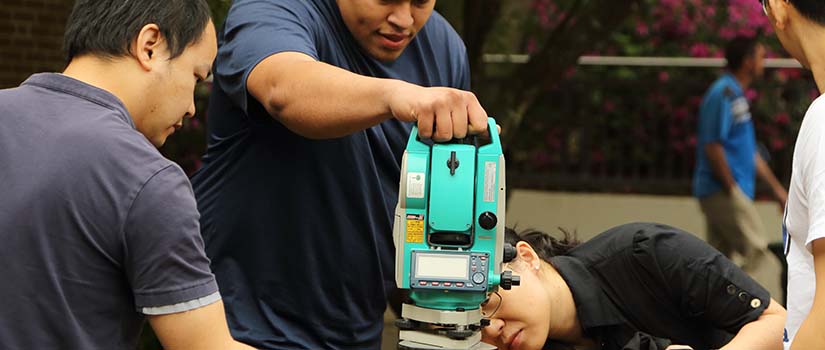Graduate Studies
In our graduate programs, you’ll study environmental change, urban and political geography, spatial data analysis, remote sensing, physical systems and environmental science. You'll also learn the history of geography and receive training in geographic research methods and research design. You’ll learn through independent research as well as immersive, in-class instruction. Along the way, you’ll receive support from an advisement or doctoral committee who will help you progress toward your degree.
Students in the M.A. program will complete most of their coursework in human geography or environment-society relationships. The program offers two options: a thesis option, which culminates in a thesis defense; or a non-thesis option, which culminates in an extended research paper written under the guidance of an advisor.
General requirements for the master’s degree program are found in the Graduate Student Handbook [PDF].
Students in M.S. program will complete most of their coursework in physical geography, environmental science or geographic information science. The program offers two options: a thesis option, which culminates in a thesis defense; or a non-thesis option, which culminates in an extended research paper written under the guidance of an advisor.
General requirements for the master’s degree program are found in the Graduate Student Handbook [PDF].
Doctoral candidates will deepen their ability to think critically and reason scientifically about geographical concepts, and they will produce significant contributions to geographical scholarship through research and publication. The program culminates in a comprehensive written exam and an oral dissertation defense.
General requirements for the doctoral program are found in the Graduate Student Handbook [PDF].
Graduate Resources
Graduate students enjoy access to myriad research resources and facilities, and the department is also home to several research institutes and centers. The department is licensed to run ESRI software and owns a wide array of equipment used for environmental science, geographic information science and remote sensing research. Graduate students also have access to the university’s world-class Thomas Cooper Library, including its extensive e-journal, aerial photography and map collections. Specialized programs in the Center for Teaching Excellence provide valuable instructional training to students. The Geography Graduate Student Association provides a forum for graduate students and organizes numerous service activities in the department, the university and the community.
